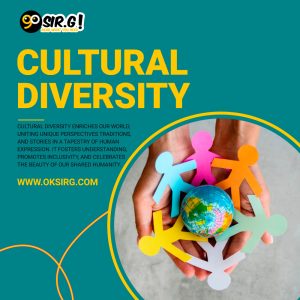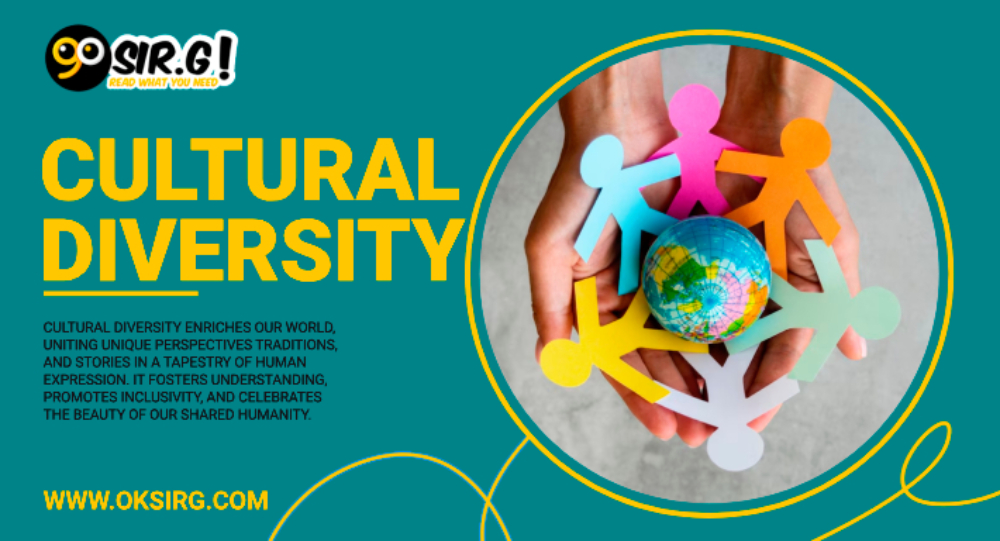Cultural diversity thrives through recognizing and appreciating cultural differences, fostering a vibrant atmosphere of cultural exchange.
In today’s interconnected world, cultural diversity is increasingly recognized as an essential resource that enriches our societies. Fostering inclusive spaces is critical to promoting cultural diversity and fostering a harmonious culture. By creating environments that respect and welcome diverse cultural diversity backgrounds, we can foster understanding, build bridges between communities, and celebrate the beauty of our varied world. Furthermore, we explore the importance of promoting inclusive spaces and how they help promote cultural diversity.
Accepting Cultural Differences:
The promotion of integration areas assumes that cultural differences are taken into account. It means recognizing that everyone brings unique experiences, beliefs, and traditions. By valuing and respecting these differences, we provide an environment where everyone feels seen, heard, and loved. Moreover, distinctions accomplish through inclusive policies, sensitivity training, and encouraging open and respectful dialogue.
Integration Rooms Offer Opportunities For Meaningful Cultural Exchange:
 They encourage interaction and collaboration between people from different backgrounds and enable the exchange of ideas, traditions, and perspectives. Cultural exchange promotes mutual learning, broadens horizons, and helps to break down stereotypes and prejudices. Furthermore, business can be done through social events, festivals, workshops, and educational programs facilitating cross-interaction.
They encourage interaction and collaboration between people from different backgrounds and enable the exchange of ideas, traditions, and perspectives. Cultural exchange promotes mutual learning, broadens horizons, and helps to break down stereotypes and prejudices. Furthermore, business can be done through social events, festivals, workshops, and educational programs facilitating cross-interaction.
Support Social Cohesion:
Inclusive spaces play a crucial role in promoting social cohesion in societies. When people from different backgrounds come together in inclusive spaces, they find common ground, connect and develop a sense of belonging. These promote common understanding and mutual recognition, social peace, and reduce social divisions.
Empowering Marginalized Communities:
Promoting inclusive spaces also allows marginalized communities to actively participate and contribute to society. Furthermore, that means creating platforms and opportunities for these communities to share their heritage, voice their voice and hear their point of view. Moreover, these achieve by supporting initiatives, providing access to resources and education, and promoting equal representation and opportunities.
Education For Integration:
Education plays a crucial role in promoting inclusion and developing diversity. Moreover, by integrating multicultural education into the curriculum, schools, and educational institutions can offer students different cultures, stories, and perspectives. Furthermore, it gives students the skills to navigate multicultural environments and nurtures a future generation committed to inclusion.
Promoting inclusive spaces is a transformational process encouraging diversity and a harmonious society. By embracing differences, fostering exchange, fostering social cohesion, empowering marginalized communities, and embedding inclusive education, we can create an environment where people from all walks of life feel welcome, respected, and valued. Furthermore, accepting inclusion in our communities, institutions, and daily interactions contributes to a more vibrant, resilient, and just society where diversity is valued as an enrichment. Together we create spaces that care for and protect our rich heritage for present and future generations.
FAQS!
Q: What is cultural diversity?
A: Cultural diversity refers to various cultures, traditions, languages, and practices in a society or community. Furthermore, it recognizes and appreciates the differences and uniqueness of each culture and promotes respect, understanding, and inclusion.
Q: How does cultural diversity contribute to personal development?
A: Cultural diversity contributes to personal growth by introducing individuals to new ideas, beliefs, and values. Moreover, it expands their worldview, challenges assumptions, and encourages empathy and openness. Interacting with different cultures increases self-confidence, adaptability, and cross-communication skills, promoting personal development and intelligence.





Leave feedback about this
You must be logged in to post a comment.